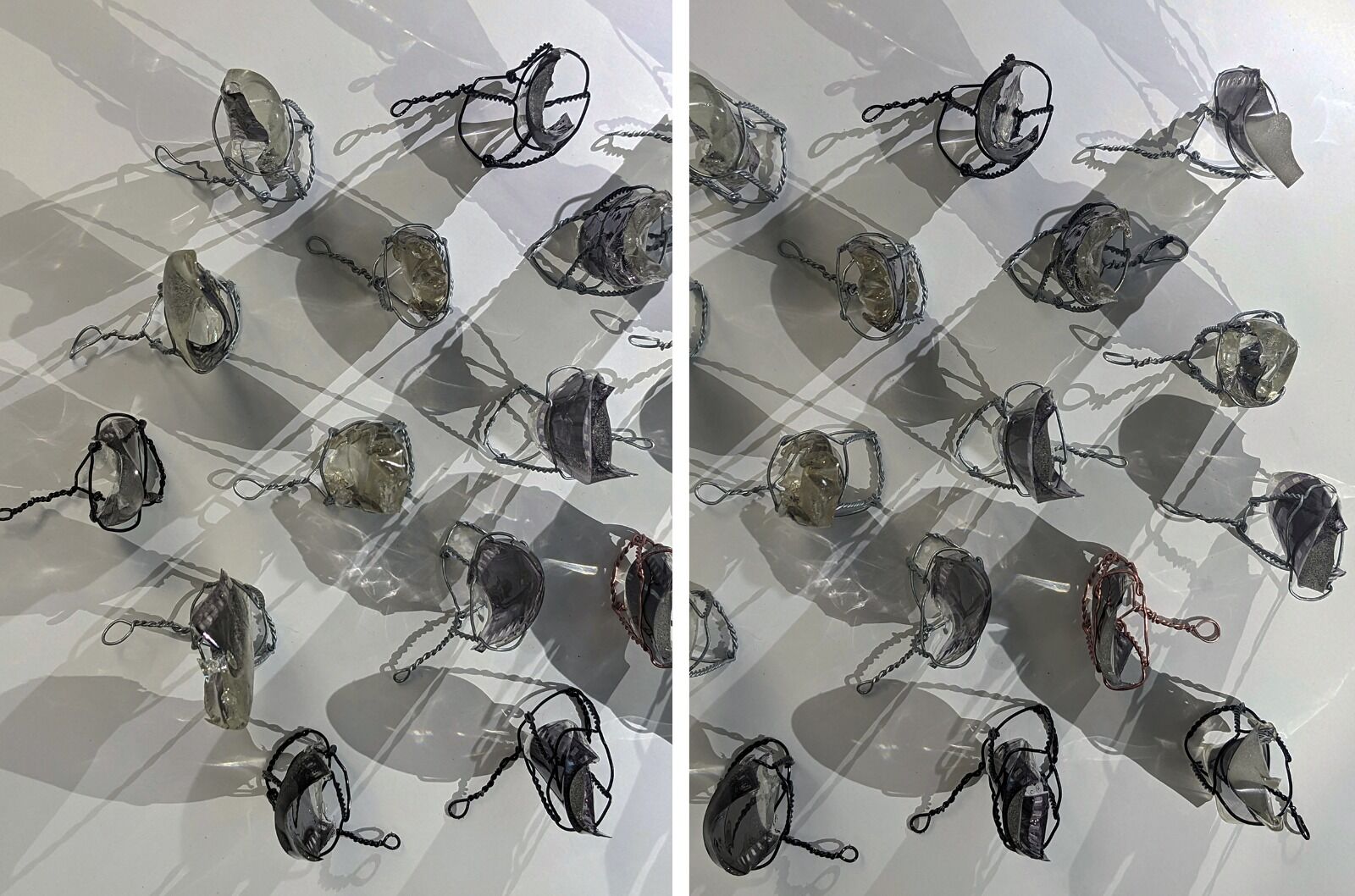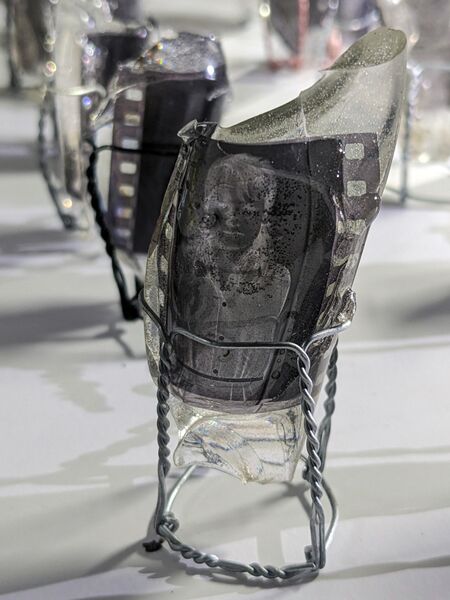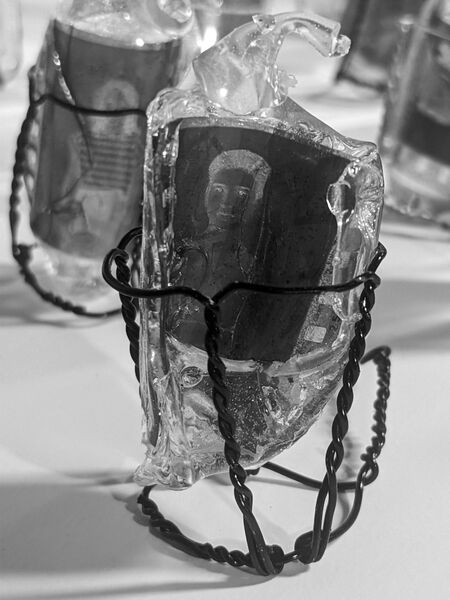Faux Diamonds, 2024
Forgotten Doctrine ( 2025)
https://www.blurb.co.uk/b/12511915-forgotten-doctrine
After reunification, many East Germans expected prosperity and freedom to arrive without losing the security of state care. But the reality proved more complex. The demands of democracy and personal responsibility left many disillusioned.Today, many who grew up under authoritarianism express scepticism toward democratic institutions, gravitating toward parties promising control and certainty. This nostalgia often fuels hostility toward minorities and dissent.
Faux Diamonds responds to these tensions. Black-and-white negatives of my 1989 students—also used in Pavlov’s Children—are encased in resin and placed inside wire cages made from champagne bottle tops. Displayed in a tabletop cabinet and lit from above, they resemble trapped gemstones. But up close, these “jewels” reveal themselves as suspended fragments of memory. The display evokes ceremonial stillness, hinting at both freedom and entrapment—liberation gained, but constrained by ideology or disappointment. It also alludes to Western romanticism of socialism, viewed at a distance.
Faux Diamonds interrogates the illusions of the GDR, the disappointments of reunification, and the enduring risks of idealising authoritarian pasts.
The number of pieces can vary depending on the size of the display cabinet, with up to 400 pieces available for production.

https://www.blurb.co.uk/b/12511915-forgotten-doctrine
After reunification, many East Germans expected prosperity and freedom to arrive without losing the security of state care. But the reality proved more complex. The demands of democracy and personal responsibility left many disillusioned.Today, many who grew up under authoritarianism express scepticism toward democratic institutions, gravitating toward parties promising control and certainty. This nostalgia often fuels hostility toward minorities and dissent.
Faux Diamonds responds to these tensions. Black-and-white negatives of my 1989 students—also used in Pavlov’s Children—are encased in resin and placed inside wire cages made from champagne bottle tops. Displayed in a tabletop cabinet and lit from above, they resemble trapped gemstones. But up close, these “jewels” reveal themselves as suspended fragments of memory. The display evokes ceremonial stillness, hinting at both freedom and entrapment—liberation gained, but constrained by ideology or disappointment. It also alludes to Western romanticism of socialism, viewed at a distance.
Faux Diamonds interrogates the illusions of the GDR, the disappointments of reunification, and the enduring risks of idealising authoritarian pasts.
The number of pieces can vary depending on the size of the display cabinet, with up to 400 pieces available for production.




